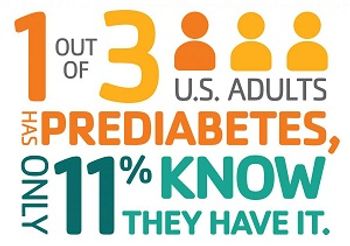
Insurance
Latest News

House Speaker Paul Ryan, R-Wisconsin, is eyeing spending cuts to Medicare and Medicaid; Louisiana's Medicaid program reported lower-than-expected spending and a potential surplus; ACA enrollment continues to climb, but expected to fall short of 2017 due to shorter enrollment period.

What We're Reading: More Healthcare Mergers; Expedited FDA Review; $102M CMS Billing Issue
Latest Videos

CME Content
More News

CMS is focusing on patient empowerment and unburdening physicians, said CMS Administrator Seema Verma during her keynote speech at the Office of the National Coordinator for Health Information Technology’s Annual Meeting.

A growing number of clinicians specializing in nursing home care indicates the beginning of a new trend in healthcare, but the impact of these new specialists on outcomes remains unclear.

Scaling back the Comprehensive Care for Joint Replacement model and canceling an expansion proposed under the Obama administration represents a shift in philosophy from mandatory to voluntary bundled payment models. But some say that commercial payers and employers will demand change no matter what CMS does.

A recently remeleased rule proposal for Medicare Advantage would give plans greater flexibiilty around the uniformity requirement and allow for the implementation of value-based insurance design principles.

Every week, The American Journal of Managed Care® recaps the top managed care news of the week, and you can now listen to it on our podcast, Managed Care Cast.

This week, the top managed care stories included a new rule from CMS to address drug costs for seniors; a campaign to get payers to fund the artificial pancreas is working; and a new survey identifies how Americans prefer to treat pain.

Chief Togetherness Officer Robin Caruso, LCSW, highlights early successes of CareMore's program to address lonelineness in the senior population.

Federal regulators are asking for information that will get to the bottom of how drug discounting between pharmaceutical companies and health plans affect what seniors pay at the pharmacy counter.

Reimbursement policy has been a driver of change in the way hospitals handle heart failure patients.

Following the transition year and ahead of the full implementation in year 3, CMS made provisions to the Quality Payment Program to make it easier for clinicians to participate in the program, reduce burden, and to get clincians ready for full implementation.

CMS officials addressed a key concern that groups offering the Diabetes Prevention Program would bear too much financial risk, but they were unmoved on requests to let beneficiaries try the program more than once in a lifetime.

The reform will adjust payment for drugs purchased through the program, relieve some burden for rural hospitals, and exempt rural sole community hospitals, certain cancer hospitals, and children's hospitals.

CMS just released 2016 data on the Medicare Shared Savings Program and the information proves that patience pays off, savings don't have to happen at the expense of quality, and that physician-led accountable care organizations are more successful.

Despite its clinical success the Diabetes Prevention Program has only reached a fraction of those who need it. That could change once Medicare starts paying for the program next year.

With confusion surrounding the meaning of “savings” with regard to ACO programs, authors writing in Health Affairs outlined 3 different types of savings.

A session at the Academy of Managed Care Pharmacy (AMCP) 2017 Nexus meeting discussed the implications of recent legislative and regulatory changes in healthcare at the federal and state levels.

The hospital formulary system is an ongoing process that evaluates and selects the safest, most effective, and most economical care for hospitalized patients. As healthcare continues to change, so will the formulary management process.

The authors used Medicare claims data to examine trends in hospital–physician integration in high-volume specialties, including medical oncology.

With the clinical and financial implications of high-cost medications, and their impact on health system revenue, it is of utmost importance for all key stakeholders to be engaged in the complex revenue cycle.

The findings generated data on 19 specific clinical variables that could help physicians and patients made personalized decisions about diabetes prevention.

Specialized Medicare Advantage plans called chronic condition special needs plans (C-SNPs), may demonstrate greater improvement in outcomes and utilization of care for the beneficiaries when compared to non-SNP Medicare plans, according to a new analysis from Avalere Health.

Scaling behavioral change and reducing diabetes at the population level were major themes of the meeting.

CMS’ decision to exclude digital health from its proposal for the Medicare Diabetes Prevention Program (DPP) has caused a controversy, explained Paul Chew, MD, chief medical officer of Omada Health.

A GAO report faults CMS policy on durable medical equipment, and the diaTribe Foundation convenes a daylong session to guide the FDA on how future drugs and devices should be evaluated for measures beyond A1C.

Medicare formularies were inconsistent in increasing restrictiveness to drugs that received FDA black box warnings for death and/or cardiovascular risk with safer available drug alternatives.
















